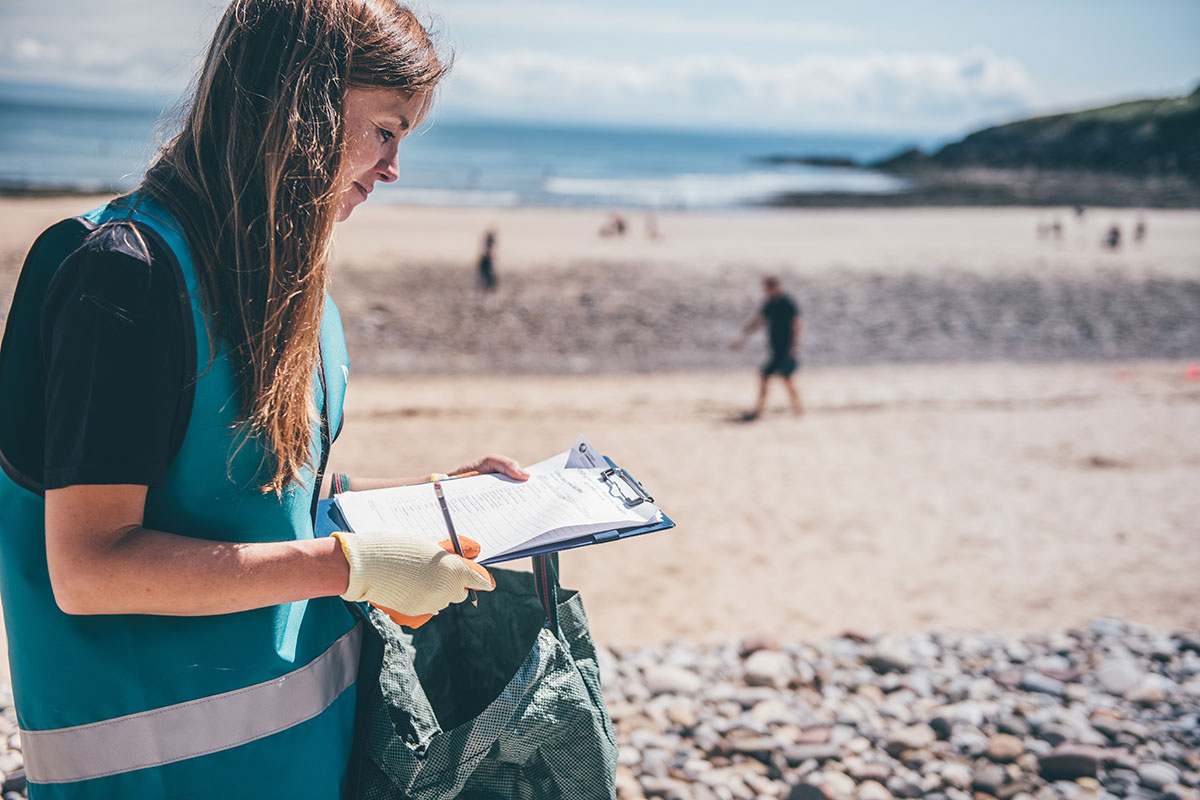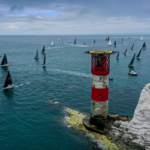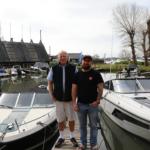The Marine Conservation Society has launched its annual State of our Beaches 2023 report, highlighting the need for less single-use plastic items and more refillable options.
The charity’s beach cleaning programme, now in its 30th year, asks volunteers to record all litter that they find within a 100-metre stretch of beach. By gathering vital data from across the UK and Channel Islands, the charity creates change for cleaner seas and a healthier planet through policy and industry change. Last year, over 148 kilometres of beach were surveyed by volunteers, who removed 17,208kgs of litter from our coast.
Using data collected by over 14,000 volunteers, the State of our Beaches 2023 report shows that half of all litter collected came from public sources – either dumped, blown or washed onto our beaches. Drinks-related litter, such as plastic bottles, caps and cans were one of the most found items, with an average of 16 found per 100 metres of beach surveyed. This figure is up 14% compared to the charity’s 2022 report.
Plastics caps and lids were recorded on 89% of surveys, with over 30,000 found in total. Plastic bottles were also commonly collected, with 73% of surveys finding this single-use item – a 4% increase compared to 2022. The charity’s inland litter pick survey, Source to Sea, also reported finding plastic bottles on 92% of cleans.
However, the charity’s State of Our Beaches 2023 report also indicates that some types of litter are on a downward trend. Although still in the top 10 litter items, disposable plastic cutlery, trays and straws were found on 5% fewer beaches across the UK, showing that bans on these plastic items between 2022 – 2023 could be working. The presence of plastic cotton bud sticks also dropped by 14%.
Lizzie Price, Beachwatch Manager at the Marine Conservation Society, said, “Half of the litter found on our beaches originates from public sources, underscoring the pressing issue of single-use plastic. Evidence shows that refillable alternatives and litter return schemes effectively reduce rubbish, as demonstrated by the decline our data has shown in items like plastic bags and disposable cutlery.
“Urgent and decisive action from UK governments is needed to accelerate our shift towards a circular economy, where we reuse, repair and recycle. The public needs greater access to refillable products and systems need to be implemented in which manufacturers are responsible for their waste.”
Governments across the UK have committed to delivering deposit return schemes from October 2025. However, the proposed scheme in England does not include glass items, despite glass being found on 52% of beaches in 2023. The charity is calling for governments across the UK to introduce compatible all inclusive deposit return schemes as soon as possible. This would see aluminium cans, and plastic and glass bottles have a 20p deposit which would be returned when recycled which would reduce drinks-related pollution.
Businesses are, however, starting to take refillable and reusable options into their own hands. Supermarket chain, Aldi, the largest corporate funder of the charity’s 2024 Beachwatch programme, is already leading the charge in refillable items by trialling refillable options for cereals and porridge oats in their stores over the past 5 months.
Plastics and Packaging Director, Luke Emery, from Aldi, who are running 4 beach cleans for staff and volunteers in 2024, said, “We are continually working to reduce single-use plastics and packaging, and making unpackaged product options more commonplace for our customers is a key part of this. We are really pleased with the uptake of our refillable range so far by customers. Not only are we making sustainable shopping more accessible, but we also offer refill products for a better price than the packaged alternative, helping our customers save money.”
Marine litter is one of the biggest threats to our seas, with plastic breaking down over time into microplastics and threatening marine life which can ingest or become entangled in them. The Marine Conservation Society is urging the UK Government to move faster on its policies to cut down plastic waste and prevent items from reaching our seas.
To find out more about the charity’s beach cleans and how to get involved, please visit mcsuk.org/beach-cleans



















